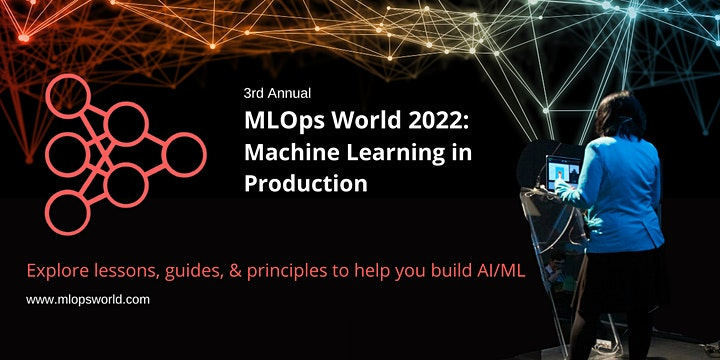🟥🟩🟦🟨 Microsoft’s New ML Announcements
Weekly news digest curated by the industry insiders
📝 Editorial
Another week another tech giant unveils a new set of machine learning (ML) technologies. The ML race between Google, Amazon, and Microsoft made us accustomed to several instances of splashy announcements each year. Last week was Microsoft’s turn. At its annual Build Conference, Microsoft made ML front and center with a series of innovative announcements ranging from hardware to cloud ML services to partnerships.
One of the announcements that have the Microsoft developer community super excited is the integration of GitHub’s CoPilot, powered by OpenAI’s Codex, as a native Visual Studio extension. This would be the first iteration of incorporating AI-assisted programming as part of a major IDE. The partnership between Microsoft and OpenAI continues to yield dividends with the launch of Azure OpenAI, which enables access to the OpenAI APU as a native Azure service.
Project Volterra was another interesting announcement that came as a result of the partnership between Microsoft and Qualcomm. The project combines a development kit with a neural processor that will give ML engineers access to best-in-class computing capacity. Microsoft also unveils AI automation for tools like PowerApps and Power Pages, a new low-code stack for building websites. The series of ML partnerships announced at Build were as impressive as the technologies. In addition to OpenAI, Microsoft announced partnerships with NLP powerhouse HuggingFace to incorporate its Transformers library as part of Azure ML services. Similarly, Microsoft announced that Meta had selected Azure as its preferred ML infrastructure and development stack.
At Build, Microsoft provided more validation about their ML research and technology investments. Azure continues to steadily gain ground as one of the most complete ML platforms in the market and is attracting some of the top talents in the space.
🔺🔻TheSequence Scope – our Sunday edition with the industry’s development overview – is free. To receive high-quality content about the most relevant developments in the ML world every Tuesday and Thursday, please subscribe to TheSequence Edge 🔺🔻
🗓 Next week in TheSequence Edge:
Edge#195: we start a new series about graph neural networks; observe how DeepMind showcases the potential of GNN; discuss Deep Graph Library, a framework for implementing GNNs.
Edge#196: we explore FLUTE, Microsoft’s new framework for federated learning.
Now, let’s review the most important developments in the AI industry this week
🔎 ML Research
Solving Crossword Puzzles
Berkeley AI Research (BAIR) lab published a paper and open source code of a multi-task model that beat humans at the top crossword challenge in the world →read more on BAIR blog
(De)ToxiGen
Microsoft Research published a paper presenting a dataset to train large language models in hate speech moderation scenarios →read more on Microsoft Research blog
AdaTest
Microsoft Research published a paper introducing AdaTest, a model that uses a human-in-the-loop approach with large language models to fix bugs in software applications →read more on Microsoft Research blog
Label Differential Privacy
Google Research published a paper introducing a more relaxed and practical method for differential privacy →read more on Google Research blog
🤖 Cool AI Tech Releases
Microsoft AI Announcements
At the Build conference, Microsoft unveiled an exciting group of new AI technologies and partnerships →read more in this comprehensive summary from Visual Studio Magazine
TensorFlow 2.9
The new version of TensorFlow is here, and it includes many cool features →read this summary from the TensorFlow team
MuJoCo
DeepMind open-sourced MuJoCo, the physics simulator they acquired last year →read more on DeepMind blog
📌 Event: June 9-10th, 3rd Annual MLOPs World 2022
The MLOps World Committee would like to invite you this June 9-10th for a truly must-attend event, and an unforgettable experience in Toronto, Canada!
For anyone building towards or looking to sustain models in production, this is a must-attend event!
🛠 Real World ML
Causal Inference at Netflix
Netflix shares some details about different implementations of causal inference techniques in its internal applications →read more on Netflix blog
Data Governance at LinkedIn
LinkedIn details some of the schema, annotations, and processes used in their data governance platform →read more on LinkedIn Engineering blog
Microservices Walmart
Walmart discusses the architecture of their microservices-based ETL pipeline →read more on Walmart Global Tech blog
💸 Money in AI
ML&AI&Data
Data observability startup Monte Carlo raised $135 million in Series D funding round led by IVP. Hiring from anywhere.
Data observability startup Cribl raised $150 million in Series D funding led by Tiger Global Management. Hiring remotely in the US.
Data observability and lineage platform MANTA raised $35 million in a Series B funding round led by Forestay Capital. Hiring across the globe.
AI chip startup SiMa.ai raised a $30 million additional investment round from Fidelity Management & Research Company. Hiring in Bengaluru/India and San Jose/US.

